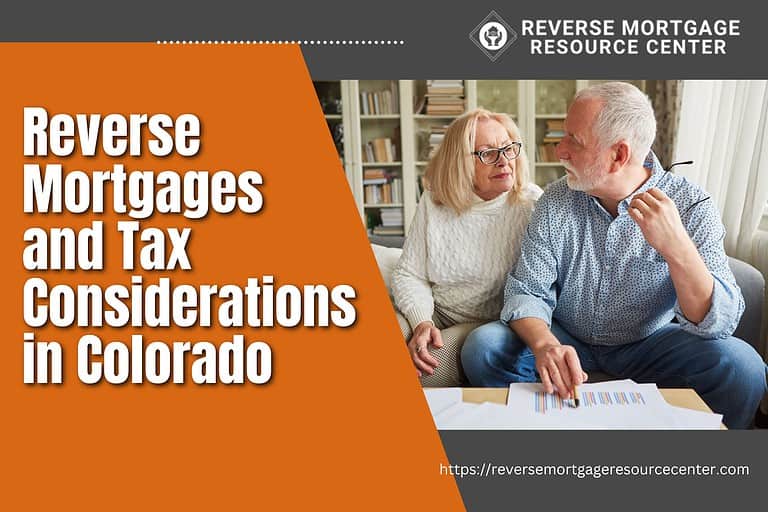Understanding Property Taxes and Reverse Mortgages in Arizona
Property ownership is a significant investment, and for many Arizona residents, understanding property taxes and exploring financial options like reverse mortgages is crucial. In this comprehensive guide, we will delve into the world of property taxes in Arizona and explore how reverse mortgages can play a vital role in retirement planning. By the end of this article, you’ll have a solid grasp of these two critical aspects of Arizona real estate.
Demystifying Property Taxes in Arizona
The Basics of Property Taxes
Property taxes are a critical source of revenue for local governments in Arizona. They fund essential services such as education, infrastructure, and public safety. Homeowners need to comprehend how property taxes work to manage their financial responsibilities effectively.
Property Tax Calculation
In Arizona, property taxes are calculated based on the assessed value of your property and the tax rate applied by your local government. The county assessor’s office determines the assessed value, and is typically a percentage of the property’s fair market value.
The tax rate can vary from one locality to another, and it’s essential to know your specific tax rate. Property tax rates are expressed in terms of dollars per $100 of assessed value, and this rate is multiplied by the assessed value to calculate the annual property tax due.
Exemptions and Deductions
Arizona offers several exemptions and deductions to help homeowners reduce their property tax burden. The most common exemptions include the widow/widower exemption, disabled persons exemption, and senior property tax exemption. These exemptions can significantly lower your property tax liability, so it’s crucial to explore your eligibility.
Property Tax Payment
Property taxes in Arizona are typically paid in two installments – one in October and another in March. The exact due dates may vary slightly depending on your county. Failing to pay your property taxes can lead to penalties, interest, and even the possibility of losing your property through a tax lien sale.
Reverse Mortgages: A Valuable Financial Tool
What is a Reverse Mortgage?
A reverse mortgage is a financial product designed for homeowners aged 62 and older. Unlike traditional mortgages, which involve making monthly payments to a lender, a reverse mortgage allows homeowners to receive disbursements from the lender, effectively converting a portion of their home equity into readily accessible funds.
Types of Reverse Mortgages
There are three primary types of reverse mortgages available in Arizona:
- Home Equity Conversion Mortgage (HECM): This is the most common type of reverse mortgage and is insured by the Federal Housing Administration (FHA).
- Proprietary Reverse Mortgages: These are offered by private lenders and are not subject to the same government regulations as HECMs.
- Single-Purpose Reverse Mortgages: These are typically offered by state or local government agencies and are designed for specific purposes, such as home repairs or property taxes.
Benefits of a Reverse Mortgage
- Available Funds in Retirement: A reverse mortgage provides a source of funds for retirees, allowing them to maintain their standard of living or cover unexpected expenses.
- No Monthly Payments: Unlike traditional mortgages, with a reverse mortgage, you are not required to make monthly payments. The loan is repaid when you move out of the home or sell it.
- Stay in Your Home: You can continue to live in your home as long as it remains your primary residence, even if the loan balance exceeds its value.
- Flexible Payment Options: With a reverse mortgage, you can receive funds as a lump sum, monthly installments, a line of credit, or a combination of these options.
- No Repayment Until You Move: The loan is typically repaid when you move out of the home, whether due to a change in residence, selling the property, or passing away. Your heirs may be able to repay the loan and keep the home.
Eligibility and Requirements
To be eligible for a reverse mortgage in Arizona, you must meet the following criteria:
- You must be 62 years of age or older.
- The home must be your primary residence.
- You should have sufficient equity in your home.
- You must participate in a counseling session to understand the terms and implications of the reverse mortgage.
Risks and Considerations
While reverse mortgages offer numerous benefits, it’s essential to know the potential risks and costs associated with these loans. Some important considerations include:
- Accumulating Interest: The interest on the reverse mortgage is added to the loan balance over time, which can significantly increase the amount owed.
- Impact on Heirs: When you pass away, your heirs may need to repay the loan or sell the home to settle the debt. This can affect the inheritance you leave behind.
- Home Equity Reduction: Over time, the home equity available to you and your heirs may decrease due to the loan balance and accrued interest.
Property Taxes and Reverse Mortgages
Property Taxes and Your Reverse Mortgage
Property taxes are a perpetual obligation for homeowners, and it’s important to understand how they intersect with reverse mortgages.
- Property taxes must still be paid by the homeowner even if they have a reverse mortgage. Failure to pay property taxes can lead to penalties, interest, and, eventually, the possibility of foreclosure.
- Some reverse mortgage products may offer assistance with property tax payments. However, these provisions can vary, so it’s important to discuss this with your lender.
Planning for Property Taxes in Retirement
When considering a reverse mortgage, it’s essential to factor in property taxes as part of your financial planning. Here are some key considerations:
- Budgeting: Ensure you allocate a portion of your reverse mortgage funds or other retirement income to cover property taxes.
- Exemptions and Deductions: Explore available property tax exemptions and deductions to minimize tax liability. Seniors and disabled homeowners may qualify for significant tax relief.
Consult a Financial Advisor: Seeking advice from a financial advisor or tax professional can help you develop a strategy to manage property taxes effectively.
REVERSE MORTGAGE RESOURCE CENTER ~LIVE LIFE ON YOUR TERMS~
Our Lending Team has been serving our clients since 2004. We are passionate about serving our clients with integrity to help them achieve their financial goals.







